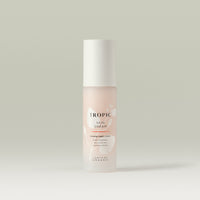Welcome back to another issue of Tropic takes on Racism.
This time we’ll be looking at household wealth and how economic and racial inequality in Britain are still rife in 2020.
WHY ARE WE TALKING ABOUT MONEY?
Money – it's on our minds a lot, but we rarely talk about it. It's fair to say it's still very much a taboo topic of conversation. Nothing can change us as a society, however, if it doesn't challenge us first.
From last month's issue, we explored how systemic racism has contributed to the persistence of racialised class disparity that exacerbates universal struggles for minority communities, such as the impact of COVID-19.
People of colour have been part of Britain's identity for hundreds of years. Many assume racial discrimination is viewed as something of the past. While racism in this country is widely condemned, Author Mehrsa Baradaran states that "wealth is where past injustices breed present suffering".
In this issue, we'll be looking at financial savings, poverty, education, and employment, and the extent of the racial wealth divide. The data used in this issue is from the Runnymede Trust, which was recorded before the coronavirus pandemic.
Above is a startling depiction of inequality. Indian households in the UK have 90-95p for every £1 of White British wealth, Pakistani households have around 50p, Black Caribbean around 20p, and Black African and Bangladeshi approximately 10p.
People of colour generally have on average fewer savings and assets than White British people. Building up savings is obviously much more difficult for people who earn less, or who work zero-hour contracts, or those who are more likely to be unemployed. Foregoing spending now to improve spending power in the future is a privilege for those who have disposable income.
White British households hold the most wealth in the UK (£282,000), closely followed by Indian groups (£266,000). Pakistani households have under half (£127,000) the wealth of White British households, with Black Caribbean households possessing substantially less. Looking at the graph below, we can see that only White British and Indian UK wealth grew to over £250,000 – while every other wealth demographic, bar Black Caribbean, stagnated.
POVERTY

Let's be completely clear, no child deserves to live in poverty. Child poverty has long-term negative effects which can manifest throughout a person’s lifetime. Every racial group has seen increased rates of child poverty. However, racial inequalities related to child poverty are worsening.
In 2017, nearly half of Black children and well over half of Pakistani and Bangladeshi children in Britain were living in poverty. The data is based on the Family Resources Survey. Poverty is defined as having an equivalised household income below the 60% median line.
This can be explained by non-caucasian families being subjected to lower wages, higher unemployment rates, higher rates of part-time working, and slightly larger household numbers.
The government's social mobility policies do little to address significant inequalities. In 2015, following a report claiming child poverty levels were 'unacceptably high' across the UK, the government established a different set of measures to set targets for reducing child poverty.
They changed the definition of child poverty, so that income is downgraded, and divorce, alcohol abuse and educational attainment are measured. This results in the perverse conclusion that because Bangladeshi children are doing better in school and their parents are less likely to drink or divorce, these children are therefore less likely to be poor.
Put simply, this is what happens when policymakers don’t understand or respond to actual data on racial inequality.
EMPLOYMENT

A complicating factor for assessing poverty and employment is ‘occupational segregation’. For example, nearly one in three Bangladeshi men work in catering, restaurants or related businesses, compared to around one in 100 White British men. And while one in 100 White British men work in taxi, chauffeuring and related businesses, the figure for Pakistani men is around one in seven.
Is this a ‘cultural preference’ among South Asians or other groups for particular kinds of job? Is it about discrimination? Or can we draw a more nuanced and complex conclusion about the role of immigration, parental and family influences on job choices and outcomes?
Whatever the explanation, it’s important to recognise the consequences in the current economy: the sorts of jobs where many ethnic minorities are ‘clustered’ are not only low-paid, but they also have limited prospects for progression, training and wage increases.
Black and minority ethnic men have much higher unemployment rates than White British men. For many ethnic minorities, unemployment appears to be a greater risk. Russell Group University graduates who are Black, for example, are more likely to be unemployed two and a half years after completing their degree compared to their White counterparts.
In 2020, Black employees hold just 1.5% of top management roles in the UK private sector, research has found – a figure that has increased just 0.1 percentage points since 2014.
People of colour are more likely to participate in the ‘gig’ economy – up to 25% compared to 14% of the general population.
The Equality and Human Rights Commission report found that ‘broadly speaking, in the period 1993–2014 there has been very little narrowing of ethnic pay gaps and for some groups they have actually increased, particularly among men.'
WHAT CAN WE DO?

These wealth gaps and stark differences illustrate once again that we have a long way to go before we see any form of true equality.
In short, too many institutions and discussions continue to alienate and exclude people of colour and those who have grown up actually understanding poverty. If voices do not challenge these issues then inequality becomes further embedded.
Just like this country has requested that companies be transparent about their gender pay gap report, we have to take affirmative action in racial gaps.
As the population increases, there is a need to ensure younger, more diverse perspectives are heard – an important distinction for making change. If you think anything you've read in this email is unjust and needs addressing, please write to your MP asking them what they're doing to fix it.
Diversity = who is in the room.
Inclusion = who is making the decisions.
When decisions are made, we should ask which groups or individuals are most likely to benefit from any proposed changes, and assess whether ethnic minorities (or other groups) are more or less likely to share the characteristics of those most likely to benefit. Second, we should ask whether the proposed change is positive, negative, or neutral with respect to addressing discrimination.
At Tropic HQ, 36% of our leaders come from ethnic minority backgrounds, of which half are also women. We believe whoever is right for the role receives the job – we're proud to be a reflection of our community in Croydon/Surrey.
We know not everyone may face the same opportunities as us. This is why we help those where possible who may be less privileged than us, in particular through our partnerships with the Trussell Trust and United World Schools.
TO WATCH
We’ve touched on social mobility in this issue, which affects every race. Hard work and a university degree doesn't always mean making it to the top. Watch the BBC stories video above to find out more.
“The opposite of poverty is not wealth; the opposite of poverty is justice. Finally, I’ve come to believe that the true measure of our commitment to justice, the character of our society, our commitment to the rule of law, fairness, and equality cannot be measured by how we treat the rich, the powerful, the privileged, and the respected among us. The true measure of our character is how we treat the poor, the disfavored, the accused, the incarcerated, and the condemned.” – Bryan Stevenson, American Lawyer

 Skincare
Skincare
 Men's
Men's
 Bestsellers
Bestsellers
 Body Care
Body Care
 Sun Care
Sun Care
 Makeup
Makeup
 Mama & Baby
Mama & Baby
 Hair Care
Hair Care








